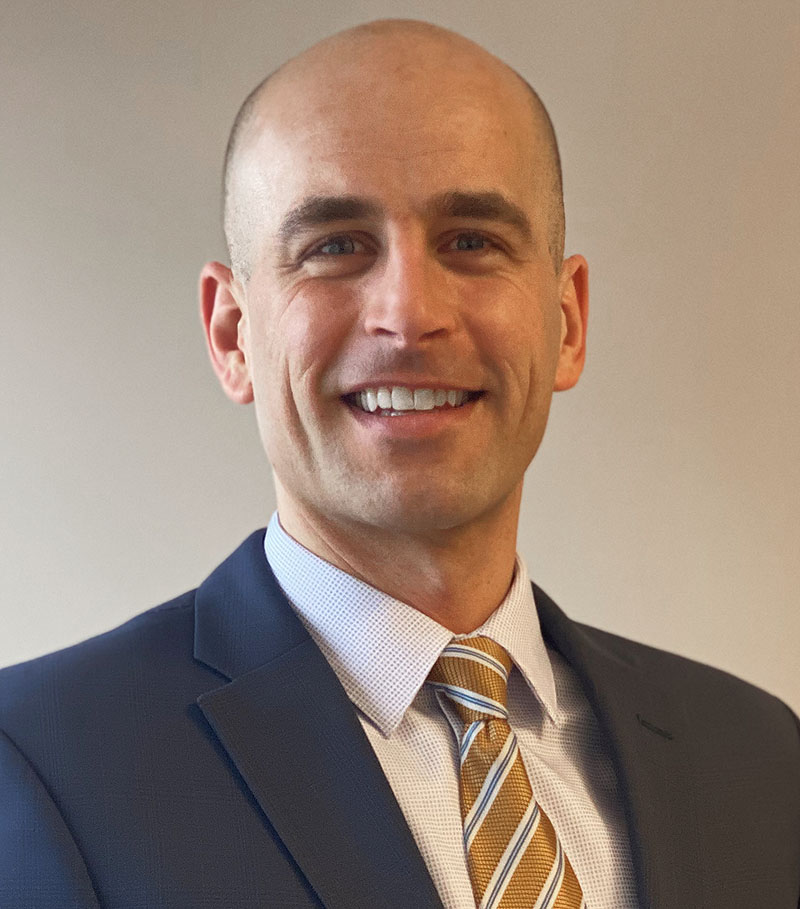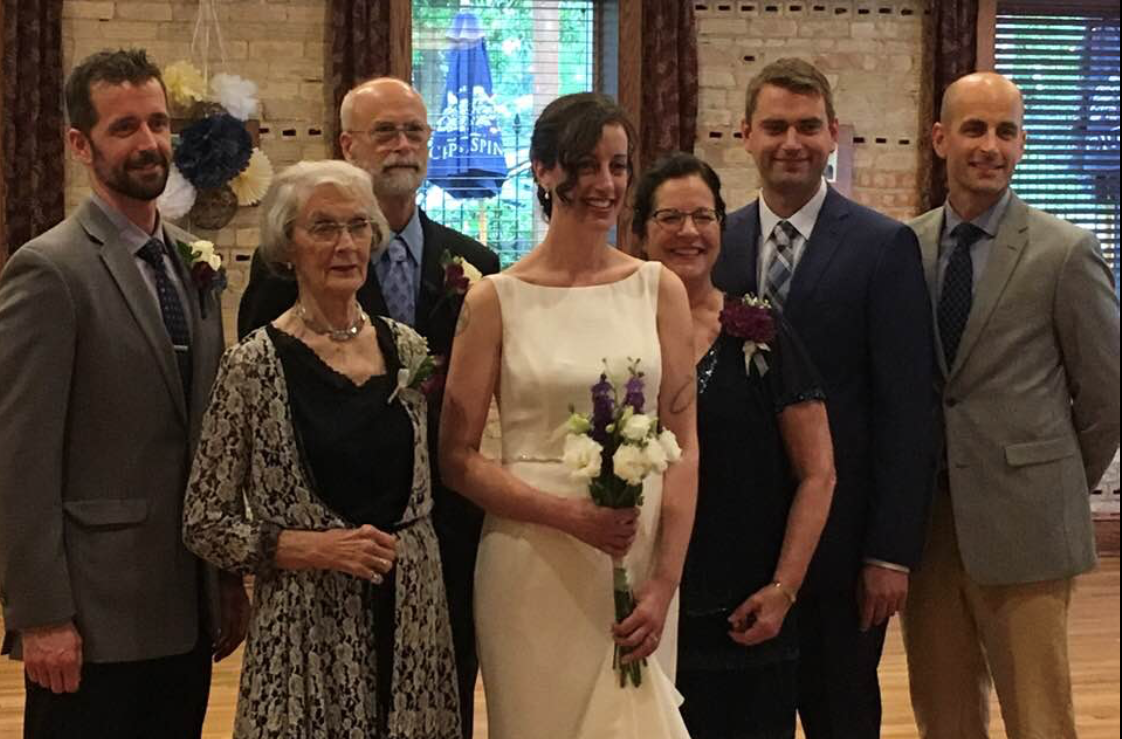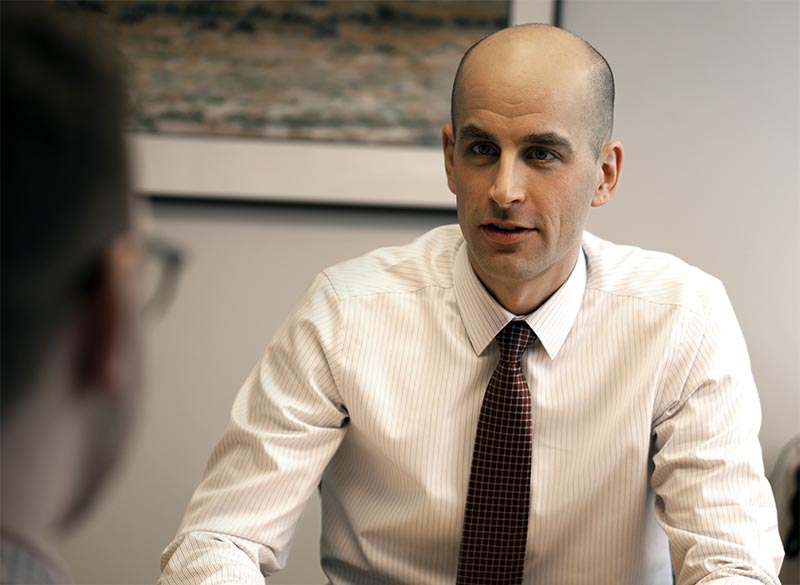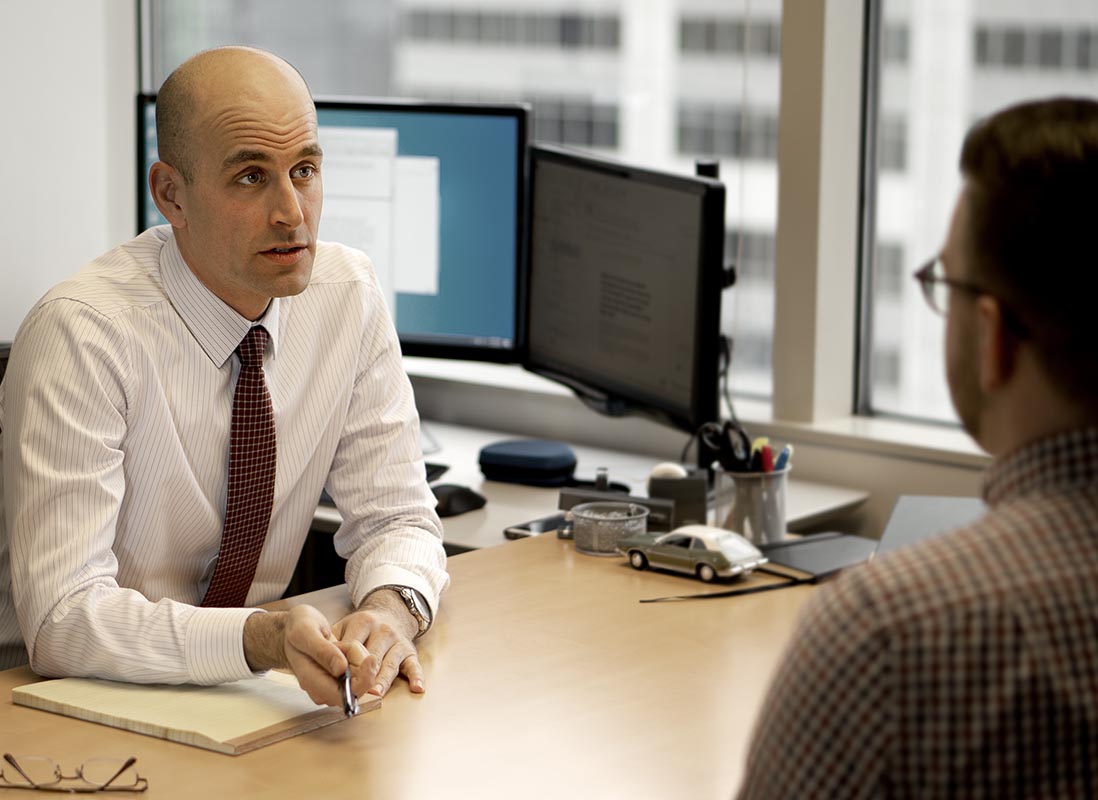Written by Attorney Raymond Konz

I recently joined Pritzker Hageman after practicing commercial litigation at a preeminent franchise and distribution law firm.
Why would I leave commercial litigation to come back to personal injury? Because I realized that representing injury victims is part of my moral identity.
I know how disruptive and exhausting injuries and illnesses can be. When I was only four years old, my oldest brother had his first grand mal seizure. In the years that followed, I witnessed my parents’ sacrifice as they searched for solutions to my brother’s illness. Neighbors, friends, and family stepped in to help, watching my siblings and me while my parents brought my brother across the country for treatment. My parents didn’t take this help for granted. Instead, they gave back to the community however they could. They both had jobs in addition to parenting but found time to volunteer with community organizations and help out neighboring farms. They brought us along, teaching us (by example) the satisfaction that comes from serving our community.

My parents seemed tireless. Their energy seemed boundless. Eager to follow in their footsteps, I started working at an auto body shop as soon as I was old enough to drive. At first, I swept floors after school. Eventually, I was a fully-trained mechanic and technician.
Our customers came from all walks of life, from doctors to factory workers. When an accident interrupted their lives, my job was to put their vehicles back on the road, to give them back the freedom and mobility our cars give us. We never cut corners, overcharged, or misled our customers, setting our shop apart from competitors.
Too often, insurance companies tried to get us to use inferior parts. They had no right to do that, but they often insisted, withholding payment to put pressure on us. But we never relented. We knew our customers’ rights and weren’t going to let insurance companies circumvent them. In standing up to insurers, I developed a taste for advocacy and the moral satisfaction that can come with it.
I liked the shop. But advocacy was only a small part of the work I was doing. I had done well in school, so I decided to go to law school. When I graduated, I took a job working with a prominent local personal injury lawyer, once again fighting insurance companies for people affected by car crashes. I didn’t know anything about this practice area but was sure I would learn valuable trial skills from this seasoned litigator.
As it turned out, I got much more than experience. In representing injury victims, I got the moral satisfaction of knowing I was doing the right thing. The gratification of knowing I was standing up for real people who might otherwise be treated unfairly in a system that too often puts profits before fairness.
My first client was a young man horrifically burned when his vintage Ford Pinto exploded during an otherwise inconsequential car accident. The resulting fireball melted his skin, causing significant scarring over 80 percent of his body. Documents showed that the manufacturer knew the car was defective, and that changes made over the vehicle’s life cycle were effective only in misleading regulators and the consuming public. Sifting through old records, I could hardly believe the corporate defendant’s indifference to the likely risk of harm. Except the evidence was staring back at me in black and white. Galvanized, I found a sense of purpose in bringing the company’s malfeasance to light. I found satisfaction in holding the company accountable for what it had done to my client.
The case was fascinating. But the injured young man was even more remarkable than the defective design or the manufacturer’s wanton disregard. Faced with potentially crippling adversity, this young man responded with hope and perseverance. As I soon found out, this attitude was common among injury victims. They aren’t looking for handouts. They just want to be treated fairly, and to make sure no one else suffers the same catastrophic losses that disturbed their lives.
My clients’ stories inspired me. Together, we stood up to soulless insurance companies and corporate defendants that tried to devalue my clients’ claims, to maximize profits at my clients’ expense.
So why did I leave personal injury? Well, I was curious. I wondered, how could I know if personal injury was right for me if I had never done anything else? I knew several lawyers at a firm with one of the country’s best-known franchise and distribution practice groups. They were looking for a commercial litigator, and we began talking about me joining their practice. Curious about the opportunity, I accepted their offer.
As a franchise and distribution litigator, I represented commercial clients in contract and intellectual property disputes. I gained a reputation for tenacious yet pragmatic advocacy and developed deep and meaningful relationships with my colleagues and clients. But over time, I came to miss representing injury victims. I missed the gratification of knowing I was advocating for real people. I missed the moral satisfaction of knowing my work made the world safer.
From the sidelines, I watched other injury lawyers and cheered for the verdicts and settlements they obtained. As I watched, I noticed one firm doing particularly excellent and important work: Pritzker Hageman.
Eventually, I had an opportunity to meet with Fred Pritzker, Eric Hageman, and the rest of their team. There was something immediately familiar about the people at Pritzker Hageman. Immediately apparent was a passion for the work they were doing. I knew immediately that the advocates at Pritzker Hageman were getting what I had been missing as a commercial litigator. They were getting moral satisfaction from doing work as important as representing injury victims.
I did everything I could to convince Fred and Eric to let me join their team. And now that I have joined the firm, I am once again morally satisfied with the work I am doing. Once again, my clients are real people, victims of careless wrongdoing who want nothing more than what’s fair and right. I proudly stand with them, knowing that my job is to be their champion.
I am humbled and inspired to do this work alongside some of the best legal professionals in the country.

